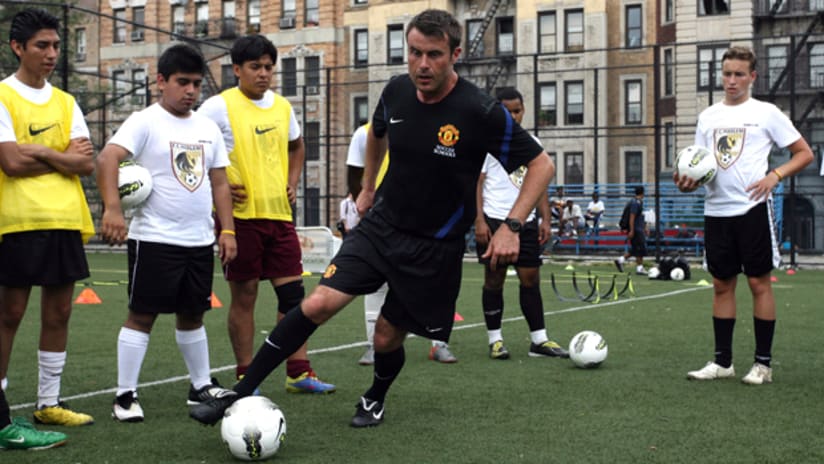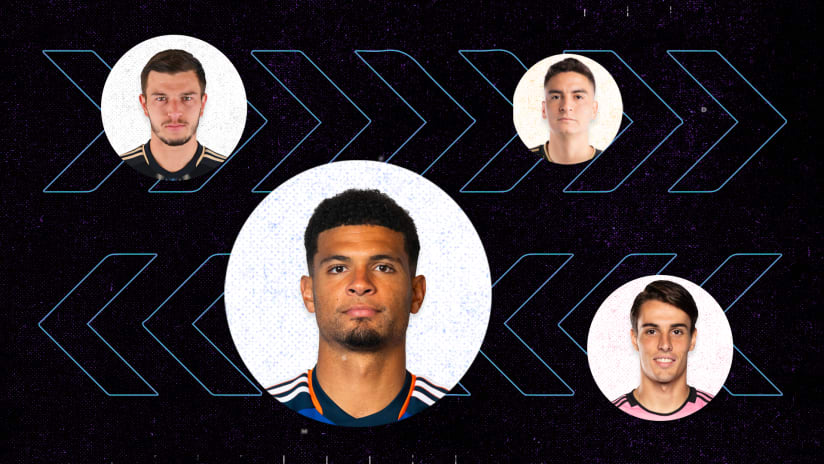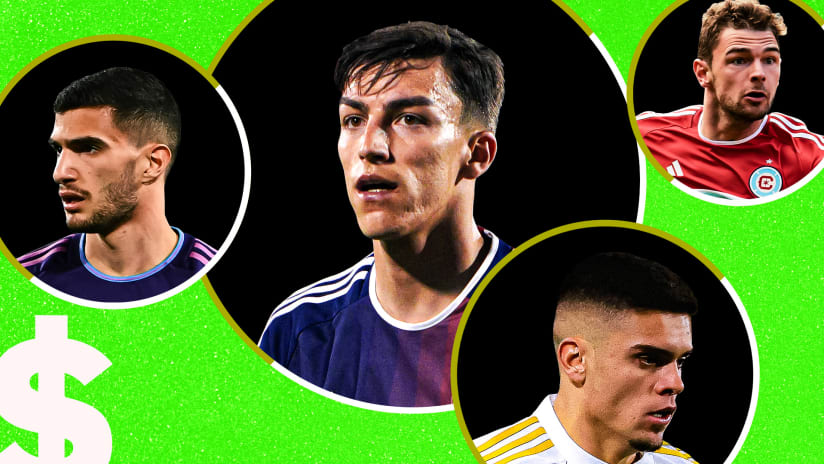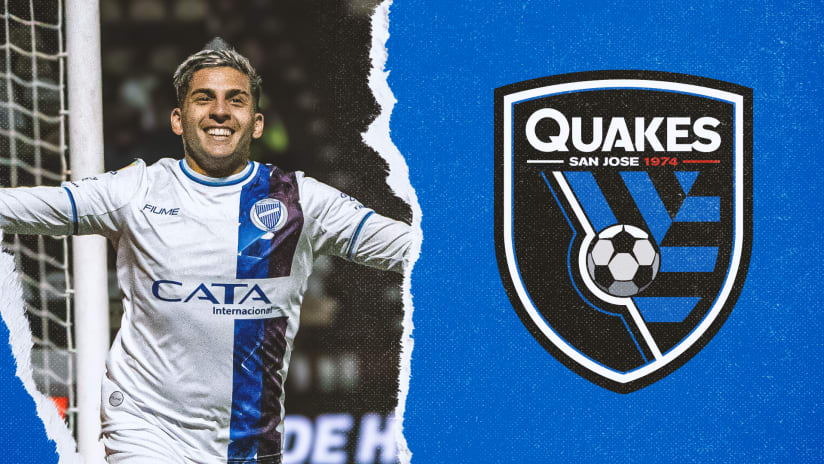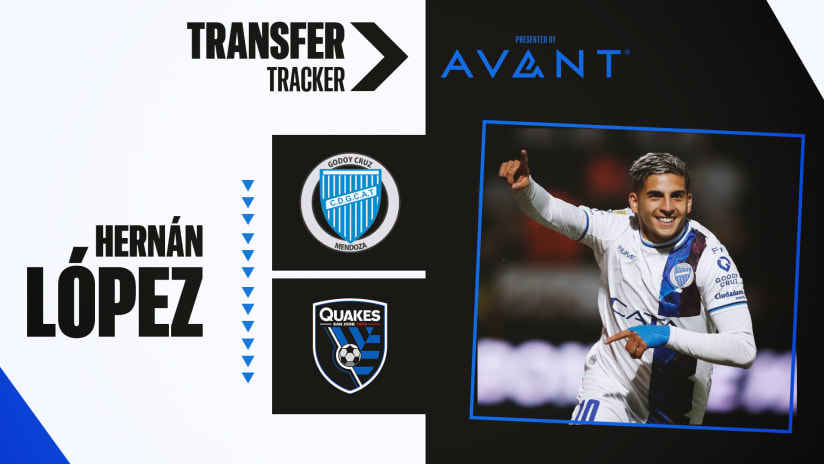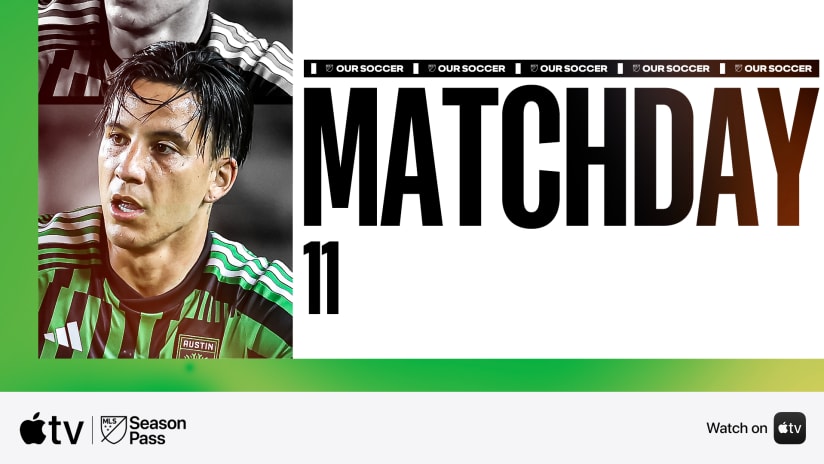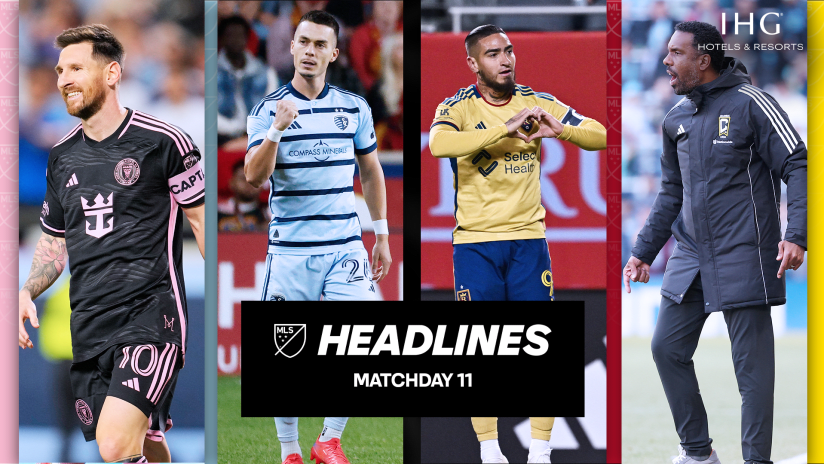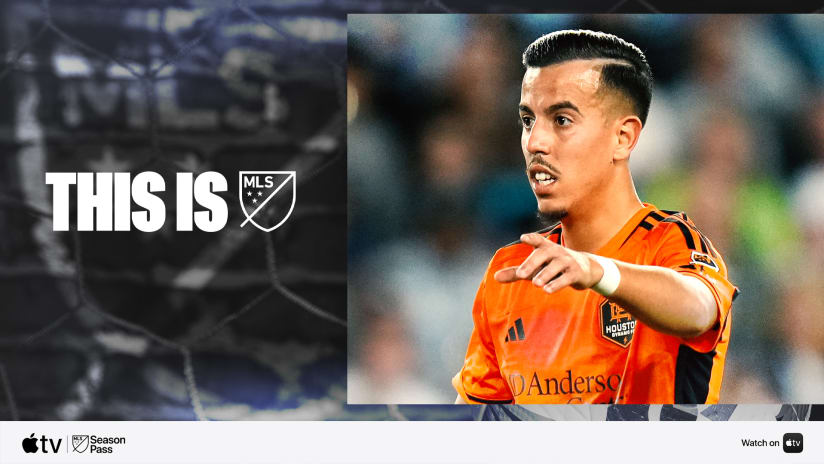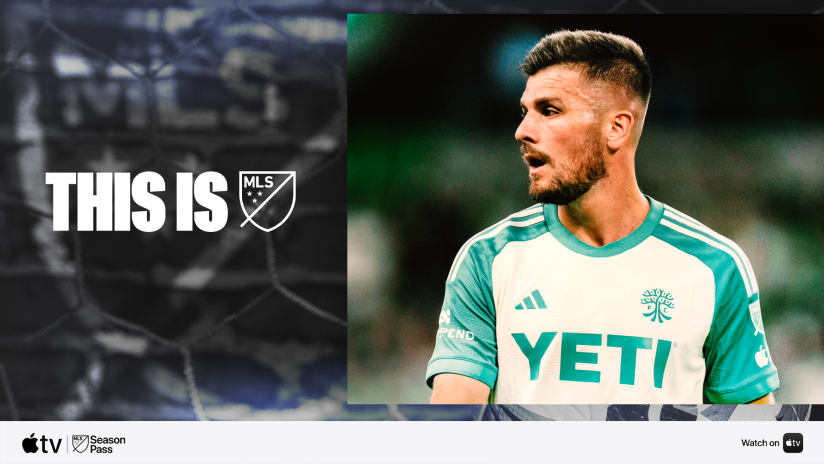NEW YORK — Splashed across much of Manchester United Soccer School's equipment are the words, "Learn to play the United way."
But what exactly is the "United way?" According to the famed club, it's not only about teaching kids "to play attractive attacking football" but also to "provide a fun and safe learning environment."
Ahead of Wednesday's MLS All-Star Game (8:30 p.m. ET; ESPN2/TeleFutura/TSN), the Red Devils' affiliated youth soccer program brought that philosophy to New York City, where it hosted a clinic for local players at Jacob Schiff Soccer Field in Harlem on Sunday.
However, thanks to local youth team FC Harlem, the "United way" — and especially the second part of it — is already being practiced by more than 600 inner-city kids aged from 4-19 years old. But there are challenges in doing that, said Irvine Smalls, the club's executive director.
WATCH: Man. Utd school in Harlem

"Some of these kids don't have their parents around, some of these kids miss work to play," Smalls said. "They have many social issues … and it's the responsibility of an organization such as FC Harlem to address some of these needs to see how there can be a pipeline into the US system."
Smalls envisions clubs like his enabling talented inner-city kids to pursue a playing career in college by teaching them how the system—or, the US soccer pipeline—functions while also helping them improve their soccer chops.
As it stands, Smalls said, most players who successfully navigate a professional soccer career in the United States do so through those middle-class communities that traditionally feed the colleges. So, clubs such as FC Harlem look to foster a safe, structured playing environment to ultimately help local kids make a more positive impact on the national game.
"I think if we can get more kids into the sport, I think it could be valuable for MLS teams, it could be valuable for the national team, as well," Smalls said. "But the reality of it is soccer is tied to the academic model."
Despite some oppressive heat, more than 50 players of all ages and nationalities—Ecuadoran, Mexican, Ghanian, Togolese, Sierra Leonean and those from the Caribbean were just a few Smalls mentioned—were treated to a series of drills led by some of Manchester United's top youth coaches.
Separated into age groups, the players worked on their touch and fitness while curious onlookers surrounded the small swath of astroturf laid straight on top of concrete. There was plenty of laughing, though it was clear some young players were looking to impress the elite visitors.
"New York City's tough when you're working off a field like this," Smalls said. "It's more about how to expose more kids [to soccer], see if we can use sport as a vehicle to get them to go to college, and at the same time let's see how we can get more kids of color into the pipeline of the US."


